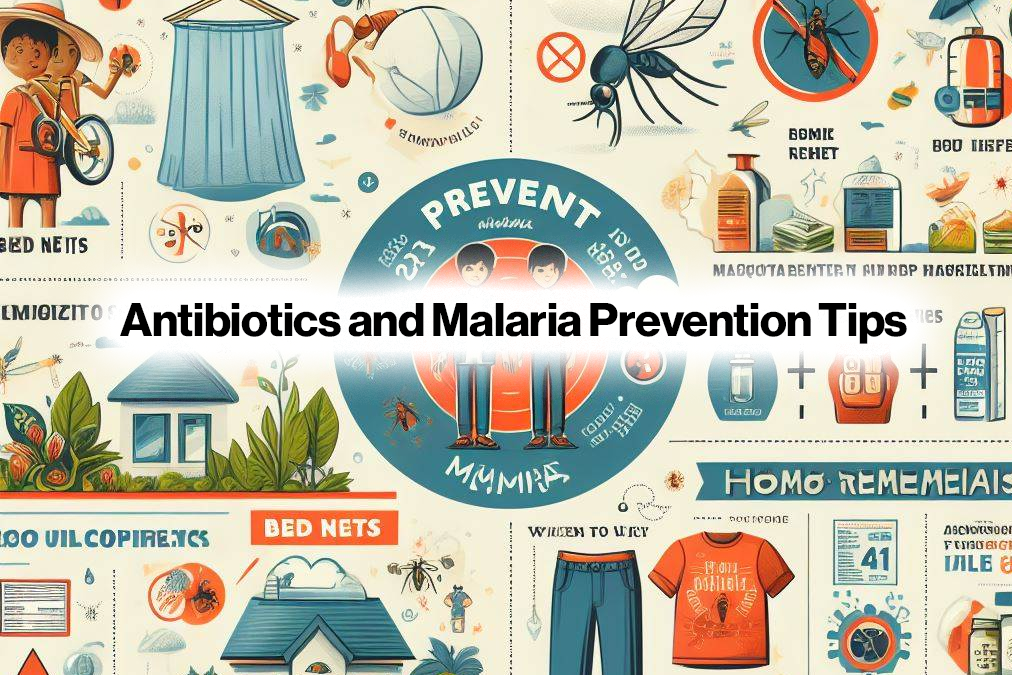Introduction
Welcome to our comprehensive guide on antibiotics and their role in preventing malaria. Malaria, a potentially life-threatening disease caused by parasites transmitted through mosquito bites, continues to be a global health concern. In this article, we will delve into the significance of antibiotics in the prevention of malaria and offer you valuable insights to ensure a safer and healthier life.
Understanding Malaria
Malaria is a tropical disease that affects millions of people worldwide, particularly in regions with high mosquito activity. The disease is caused by Plasmodium parasites and manifests with symptoms such as fever, chills, headaches, and muscle aches. If left untreated, it can lead to severe complications and even death. Prevention is key, and that’s where antibiotics come into play.
The Role of Antibiotics
Antibiotics, commonly associated with treating bacterial infections, can also play a vital role in preventing and managing malaria. While antibiotics themselves are not a direct cure for malaria, they serve as an important tool in the prevention and treatment of complications that can arise due to the disease. When used in combination with other preventive measures, antibiotics can significantly reduce the risk of malaria transmission and its impact on individuals.
Antibiotics and Malaria Prevention
1. Prophylactic Antibiotics
Prophylactic antibiotics are a crucial aspect of malaria prevention, especially for individuals traveling to malaria-endemic areas. These antibiotics are prescribed before, during, and after the trip to such areas, acting as a preventive barrier against potential infections. They help suppress the growth of parasites in the bloodstream, reducing the likelihood of contracting malaria.
2. Combination Therapies
In regions where malaria is prevalent, combination therapies involving antibiotics are used to treat infected individuals effectively. These therapies not only target the parasite but also prevent its resistance to traditional antimalarial drugs. By leveraging antibiotics in combination therapies, healthcare professionals can provide a more comprehensive and resilient approach to tackling malaria.
3. Managing Complications
Malaria can lead to severe complications, such as bacterial infections in the bloodstream. Antibiotics, in this context, are administered to treat secondary infections that might arise due to weakened immunity. By promptly addressing these complications, antibiotics contribute to better patient outcomes and recovery.
Best Practices for Malaria Prevention
1. Consultation and Prescription
Before traveling to malaria-prone areas, it is crucial to consult a healthcare professional who specializes in travel medicine. They will assess your health condition, recommend appropriate antibiotics if necessary, and provide guidance on their usage.
2. Adherence to Dosage
If prescribed prophylactic antibiotics, it’s essential to adhere to the prescribed dosage and schedule meticulously. Consistency ensures that the antibiotics remain effective in preventing malaria throughout your travel and even after your return.
3. Personal Protective Measures
While antibiotics play a vital role, they are most effective when combined with other preventive measures. Using mosquito repellents, wearing protective clothing, and sleeping under insecticide-treated bed nets remain essential strategies to minimize mosquito bites and potential exposure to the disease.
Conclusion
In the battle against malaria, antibiotics serve as a potent weapon for prevention and management. When used in conjunction with other preventive practices, antibiotics can significantly reduce the risk of contracting malaria and its associated complications. Whether you are planning a trip to a malaria-prone region or are concerned about local transmission, consulting a healthcare professional and following preventive guidelines are key.
Remember, the fight against malaria requires a comprehensive approach, and antibiotics are an essential piece of the puzzle. Stay informed, stay protected, and prioritize your health.

Leave a Reply